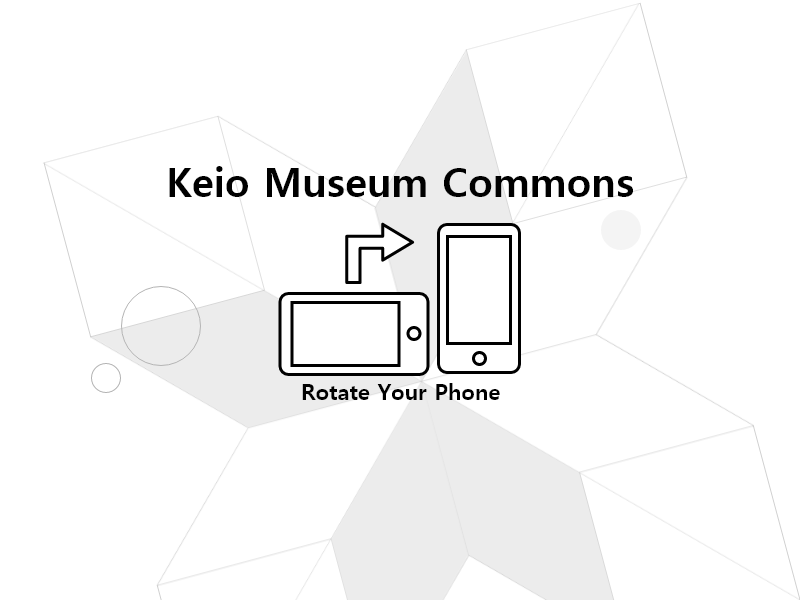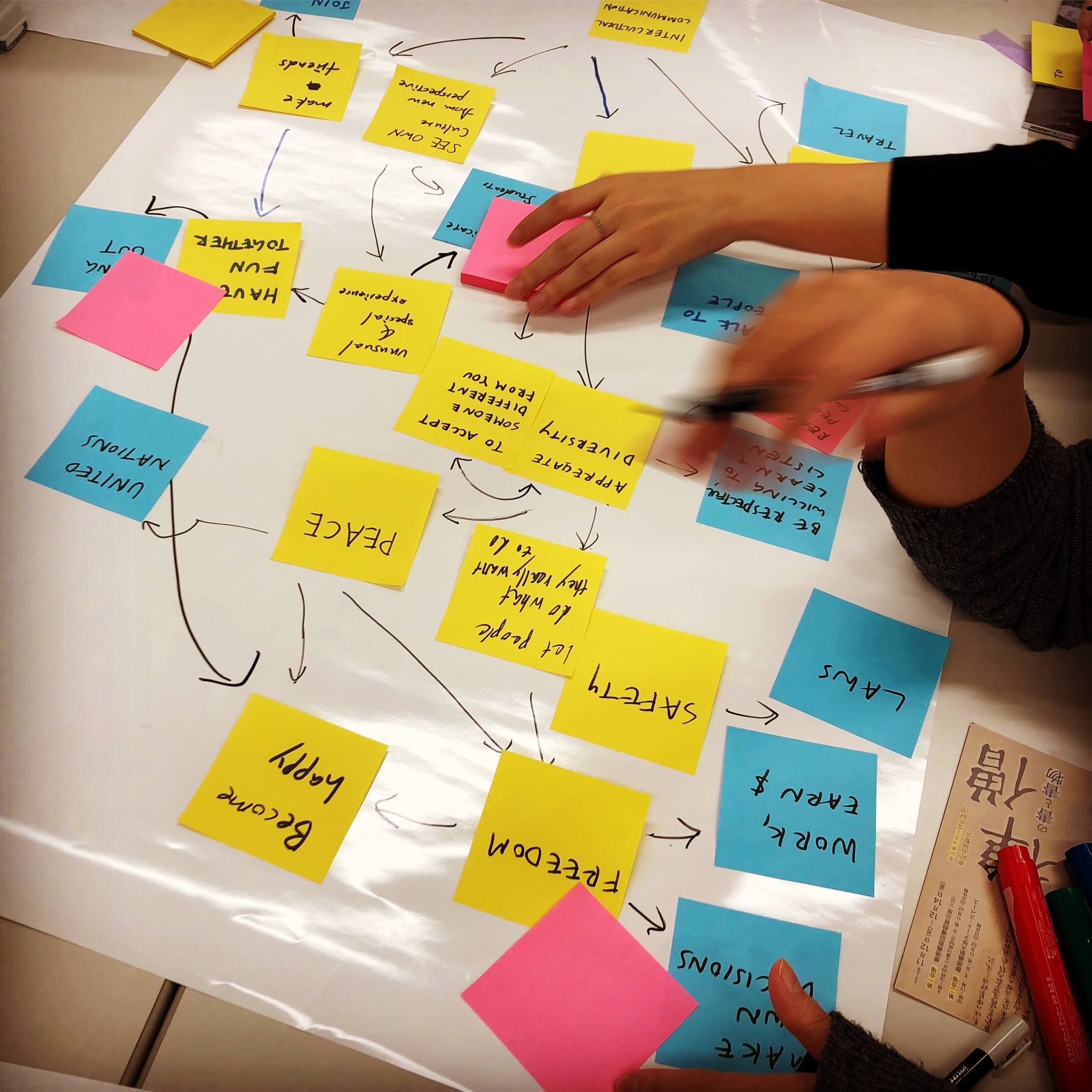


Guidance (face to face): Wednesday, 29 March 2023, 16:30-18:00
Also available online:
https://keio-univ.zoom.us/j/87812050514
ミーティングID: 878 1205 0514 パスコード: 101575
This lecture will be held face-to-face.
If applicants exceed the number of seats available, a lottery will be held.
Perspectives on Objects and Artworks / Digital Fabrication Practice
Objects around us have different forms and encompass a variety of meanings and histories. How we perceive objects and what we find in them differ for each person, and objects take on a particular appearance each time we interact with them.
In this course, based on the pedagogy of ‘Object-based Learning’, which is rooted in dialogue based on the observation of objects such as artworks and academic resources, participants develop their knowledge and understanding of the objects through conversation with others while acknowledging their own contexts. Through discussion with others, participants also learn how to accept diverse values.
The course also aims to develop a mindset to question existing presuppositions through collaborative practice and discussion using objects and to learn how to creatively output thinking through digital fabrication practice utilising KeMCo’s information environment.
Museum and Commons Ⅰ (2023 Spring semester)
| No.1 | Interacting with objects (introduction) Share how the class will work and introduce the overall theme. |
| No.2 | Learning from / about objects: An Introduction to Object-based Learning (OBL) What is OBL? An introduction to OBL, with some practical work using the KeMCo collection. |
| No.3 | Learning from / about objects: An Introduction to Object-based Learning (OBL) Discussion based on the previous work. |
| No.4 | Objects in the archive: materials relating to the creation of artworks (1) Visits to the art archive at Keio University Art Center (KUAC) for OBL practice. |
| No.5 | Objects in the archive: materials relating to the creation of artworks (2) Visits to the art archive at Keio University Art Center (KUAC) for OBL practice (discussion). |
| No.6 | Objects of the Museum: a close look at the masterpieces of Ukiyo-e Visits to KeMCo’s exhibition featuring Ukiyo-e prints for OBL practice. |
| No.7 | Objects in the museum: Ukiyo-e as objects Practical OBL exercises based on the previous visit. |
| No.8 | Objects in the digital world Considering how objects can be rooted in digital technologies. |
| No.9 | Museums and digital objects Considering how digital objects are used in museums. |
| No.10 | Digital interaction in the museum Considering the interaction with objects in museums using digital technology. |
| No.11 | Media and Art (1) Overview the trajectory of the fusion of digital technology/media in contemporary art, and study the interaction found in digital and representation, with a focus on media art. |
| No.12 | Media and Art (2): discussion Building on the previous week, we will have a discussion about art and digital technology/media. |
| No.13 | Discussion: observing and describing Discussion on how to develop knowledge and understanding of the subject through conversation with others while acknowledging one’s own context and accepting diverse values. |
| No.14 | Discussion and wrap-up |
Museum and Commons ⅠI (2023 Autumn semester)
| No.1 | Interacting with objects (introduction) Share how the class will work and introduce the overall theme. |
| No.2 | Learning from / about objects: An Introduction to Object-based Learning (OBL) What is OBL? An introduction to OBL, with some practical work using the KeMCo collection. |
| No.3 | Learning from / about objects: An Introduction to Object-based Learning (OBL) Discussion based on the previous work. |
| No.4 | Objects of the Museum: a close look at Zen art Visit KeMCo’s exhibition on ‘Zen Art’ for OBL practice. |
| No.5 | Learn how to appreciate classical books Learn how to observe classical books in detail as objects. |
| No.6 | Books as objects Visits to the Special Collection Room at the Mita Media Center (Keio University Library) for considering on books as objects. |
| No.7 | Objects of the museum: exploring the materiality of prints (1) Visits to the exhibition ‘Tetsuro Komai’ at Keio University Art Center for the OBL practice. |
| No.8 | Objects of the museum: exploring the materiality of prints (2) Visits to the exhibition ‘Tetsuro Komai’ at Keio University Art Center for the OBL practice (discussion). |
| No.9 | Multiple and materiality: digital technology and art Starting from the materiality of the multiple arts, consider the relationship between art and digital technology/media. |
| No.10 | Digital data as objects How do objects develop or transform in a highly information-oriented society? With cutting-edge research trends, we reflect on the changes that have occurred as a result of the ‘connection’ between real and digital space, and consider the prospect of those changes. |
| No.11 | Digital data and objects (1) Three-dimensional (3D) representations are increasingly being used not only for the purpose of recording and preserving cultural assets, but also in virtual museums, including VR and AR. In this session, we discuss the possibilities of 3D. |
| No.12 | Digital data and objects (2) How can cultural heritage and other objects and things accumulated over thousands of years of human history be shared? In this session we learn about the system and practical use of global data space, centred on Linked Open Data. |
| No.13 | Discussion: observing and describing Discussion on how to develop knowledge and understanding of the subject through conversation with others while acknowledging one’s own context and accepting diverse values. |
| No.14 | Discussion and wrap-up |
Yu Homma, Fumi Matsuya, Goki Miyakita, Yohko Watanabe, Shiho Hasegawa
※ This course is organized as part of the University’s educational programme, and is therefore only open to those affiliated with the University.